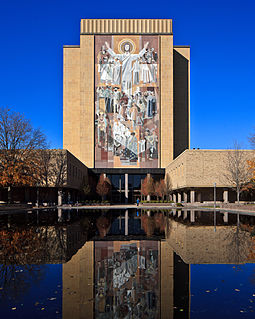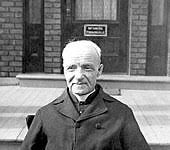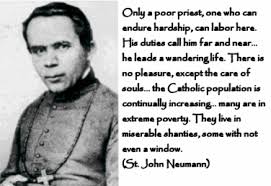Dr. John Fisher reflects upon his time at Notre Dame in the 1960’s which, for all of its own cultural revolution, seems paradisical compared to our current campuses. What we are witnessing in the apparent dissolution in our civilization had a long incubation period in the womb of these false ‘alma maters’. We reap what we have sown, and if there’s one piece of advice for what future there be, send not thy children to ‘woke’ places of learning, which will only put them further into an intellectual somnolence, easily manipulated, and prey to whatever wayward winds may blow. Stand firm in the truth, or we won’t stand at all:
As she looks out over troubled students, hundreds of candles, and the placid lake named for her, I believe Our Lady would tell us that hatred of others whose views and lifestyle differ from ours is always evil and inimical to living a holy life, for those so inclined. First a teenager on campus and then in my early 20s, Saturday’s football game, my next exam or paper due, and singing in Notre Dame Glee Club concerts rendered me far from inclined. I don’t remember caring a wit for others’ views on hardly anything. The subject of human sexuality came up in theology courses, but if there were homosexual trysts on that all-male campus (or was it all-boy?), I certainly didn’t know about them. Undoubtedly, we were all rife with hormones and adolescent sexual desires, and how we dealt with them might come up in the confessional for some of us. However, discrimination against people who eschew the gender assignment given them at birth was no ‘hot-button issue” calling for violent protests then. It sure is now, and at Notre Dame of all places! Surely there are weightier issues for these intelligent young people to ponder like the existence of God, the truth of the Resurrection, unjust wars, the plight of the poor, and the claims of Catholicism as the one true Church instituted by Jesus. Apparently not.
I will assume that those who chose to come to Our Lady’s School believe in a Creator, or at least their parents do. Nevertheless, various gender factions on campus desire and even stridently demand inclusion beside their heterosexual peers as normal members of the Notre Dame family. I won’t assume that their parents are also attired in t-shirts with anarchic messages demonstrating in their own neighborhoods at home with equal vitriol.
Since these exhibitionists have garnered national attention at a largely sympathetic Catholic university, I will grant you that all humans eventually face the challenges of their sexuality. Heterosexual people like me can be especially prone to condescension and censure of other choices. Unlike most of us, hatred and bullying may well have been part of these insurgents’ experience with their own gender-identity struggles since childhood. Such mistreatment might have led them to find safety and comfort among persons of a similar persuasion at Notre Dame. Christian universities without exception would claim that they call all students to personal holiness. But how does personal holiness emerge from one’s sexual identity especially if we don’t want the one we were born with?
From time immemorial the male and female sexual drive has been known to create an inner tension which seeks an occasion for release. Apparently on campus there are individuals or groups who endorse any sort of sublimation for willing participants—any number and any gender. How, it might be asked, can they reconcile these activities with what they hear from the theology department?
According to Catholic teaching which, I would cautiously assume remains – (or should remain, Editor) in full vigor at Notre Dame, it is impossible for God who is love (1 Jn 4:16) to do other than that which is loving and holy. In keeping with his nature, he equipped all of the earth’s inhabitants with reproductive organs for an intuitively obvious purpose. It follows that the purpose is a holy one and it must somehow foster a loving relationship to him. I doubt that casual or group sex, pleasuring oneself, rape, bestiality, or incest by either gender—designated or desired– would fit easily into God’s loving use for our genitalia. On the other hand, the sacrament of matrimony comes with with the help of his grace to become holy and often with the blessing of children. Not unexpectedly, the Church views marriage as sacred and permanent.
We Catholic heterosexuals can remove God and holiness from the equation with a casual, one-night “hookup,” philandering either in person or on-line, getting involved in pornography, thwarting conception, and aborting our babies. For same-sex couples the word, love, has often been been applied to a strong physical, emotional, or intellectual attraction. Such feelings are often genuine and not necessarily unholy. However, without God, their expressed sexuality becomes little else than finding imaginative, non-procreative ways to pleasure themselves. How, it might be asked, can there be Godly love in any of these aberrations?
All of us in or outside the Notre Dame family are beckoned to true holiness, even if God loves us unconditionally, deserving or not. Although he doesn’t force us, we are called to treat all of our brothers and sisters as Blessed Mother Teresa treated those dying in the streets of Calcutta. When asked why, she said profoundly and succinctly, “Because they are Jesus.” Even those who would ignore or more forcibly take issue with Catholic moral principles at Notre Dame are Jesus in the same sense. However, their disparate views and way of life cannot be condoned or tolerated as an optional variant on a truly Catholic campus. They must be invited, without hatred, to take their disruptive propaganda under pain of expulsion to a secular university where they will be welcomed and even celebrated.
The University of Notre Dame, certainly not Our Lady, has failed us if we didn’t take the religious component of our education to heart and didn’t develop a desire to seek personal holiness from what some would argue is the number one Catholic university on the planet. So what were we there for? If all we wanted is a successful and gender-indifferent life as society views it, we could have gotten that in an Ivy League whose universities only used to be founded on the teachings of Christ.










